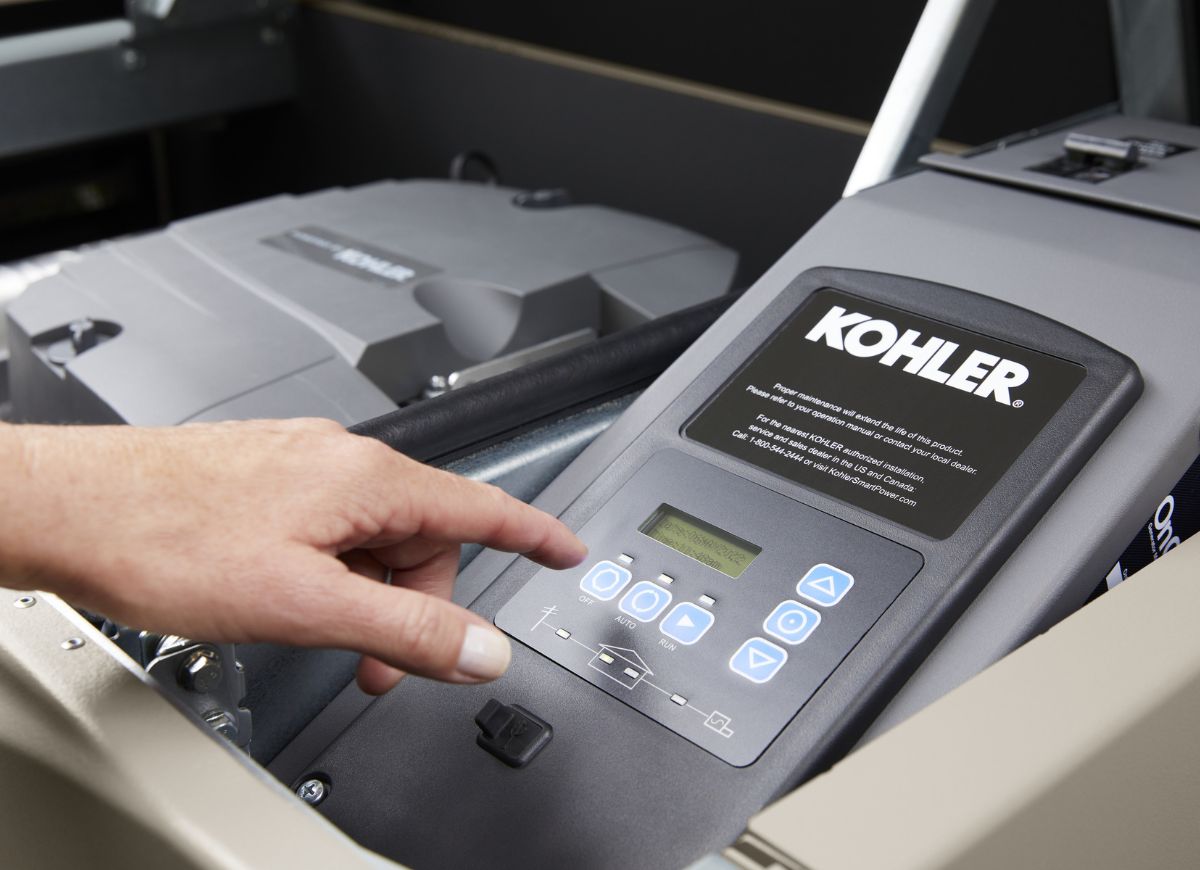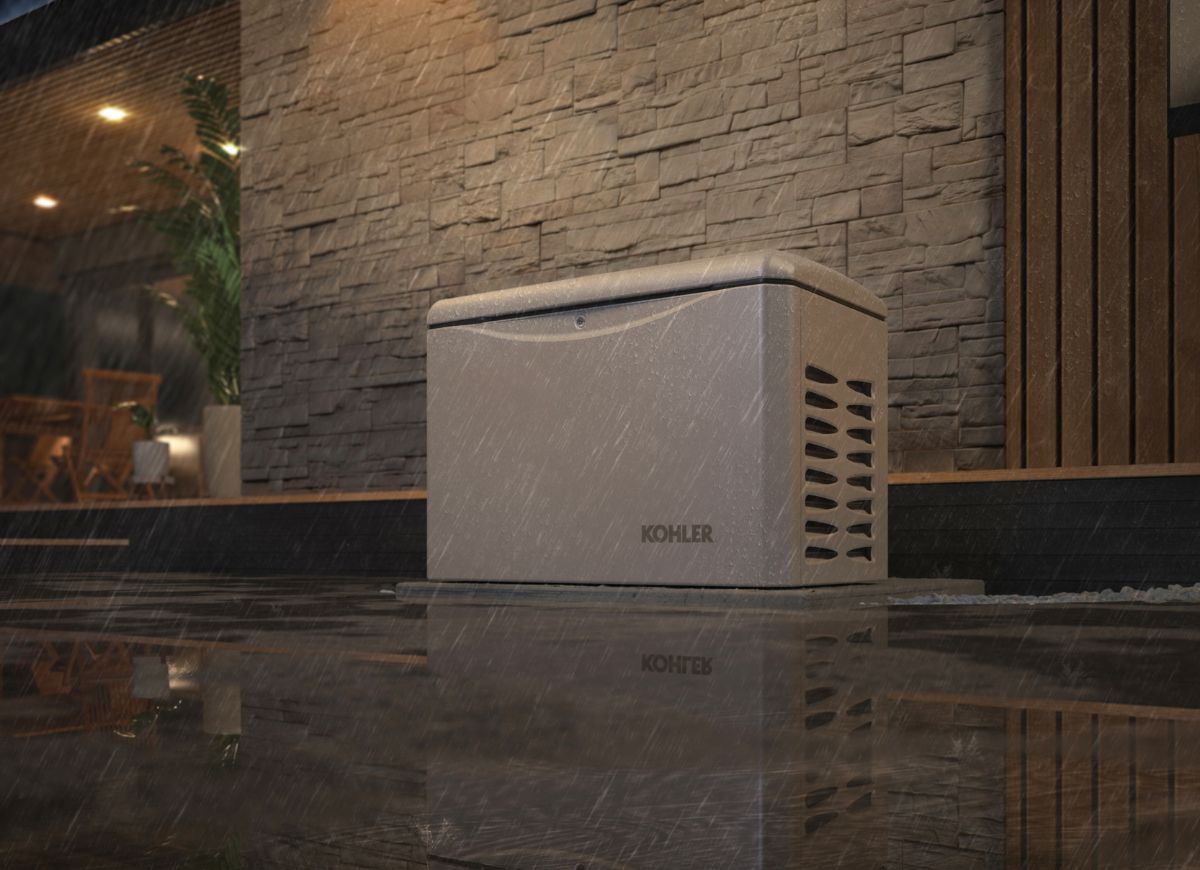We may earn revenue from the products available on this page and participate in affiliate programs. Learn More ›
This content has been brought to you by Kohler. Its facts and opinions are those of BobVila.com.
Home generators are effective options to power appliances and other electronics during an outage, but it’s important to keep generator safety in mind. Improper use of a portable generator can cause noise and vibration hazards, accidental electrocution, carbon monoxide poisoning, and fire from careless refueling or inappropriately stored fuel.
A portable generator is a good tool for temporary power needs on jobsites or when camping, but keep in mind that it cannot be used in rain, sleet, or snow. Additionally, portable generators cannot be operated for days at a time. They frequently need to be refueled, and they should never be operated without supervision.
Using a standby generator for power outage emergency response plans is a better idea because these machines are designed for extended use, even in poor weather conditions. Plus, a model like the KOHLER 26 kW Home Generator can safely and immediately start on its own, preventing potential disasters like frozen pipes from happening whether you’re at home or not. Use this guide to learn how to use a generator to keep the lights (and much more) on when the power goes out.
Kohler’s new 26 kW generators are powerful and exceptionally durable—precisely what you need to keep your home running during a power outage. Learn More About Kohler Generators
STEP 1: A standby generator turns on automatically when utility power is lost.
Starting a standby generator is effortless. It instantly detects the outage and automatically switches the home from the utility service to the generator to restore power, so you don’t have to worry about manually starting or connecting the generator.
Additionally, standby generators are fueled directly through the natural gas or propane service for the home, so there’s no need to run to the gas station for fuel before starting the generator, and there’s no need to periodically stop and cool the machine to manually refuel.
Most newly purchased or installed generators for home use should run without a load for a few hours or more, then they should run under a heavy load for as long as the manual suggests to break them in. Each manufacturer will provide guidance on break-in procedures, so be sure to refer to the user manual before operating the emergency power generator for the first time. Kohler generators feature hydraulic valve lifters on their engines, which eliminates the need for this break in procedure as well as the need for expensive valve adjustments down the road.

STEP 2: Electricity is restored precisely when you need it with a transfer switch.
After certified professionals connect a generator to a house via an automatic transfer switch during installation, electricity can be restored to the home right away any time the power goes out. A standby generator connects to the generator hookup panel, which then runs to the transfer switch. The transfer switch is also connected to the main electrical panel for the home, serving as a monitoring and rerouting device for incoming power.
The automatic transfer switch constantly monitors the incoming electricity from the utility. If it detects an outage, it will automatically switch the incoming power to the generator in order to restore electricity to the home systems. For an advanced system like the KOHLER 26 kW Home Generator, the process of restoring power to the home takes just 10 seconds.

STEP 3: The KOHLER 26 kW Home Generator provides quiet, continuous power until public utilities return.
Last but not least, enjoy uninterrupted power. Having a standby generator installed is an excellent way to make sure your home is ready in case of an emergency.
The KOHLER 26 kW Home Generator exercises at 56 decibels, which is within the sound level range of a normal conversation, so you don’t have to worry about upsetting the neighbors or violating any local noise ordinances. In addition, the KOHLER 26 kW Home Generator has protective casing that allows it to function normally, no matter the conditions outside.
It connects directly to the incoming natural gas or propane service for the home to ensure continued operation for days or even weeks, if necessary. When the worst is over, the transfer switch will detect power returning from the utility and automatically shut off the generator to prevent the machine from backfeeding.
If your neighborhood is prone to frequent power outages, it’s wise to invest in a standby generator, such as the KOHLER 26 kW Home Generator, that can automatically restore power in seconds.

